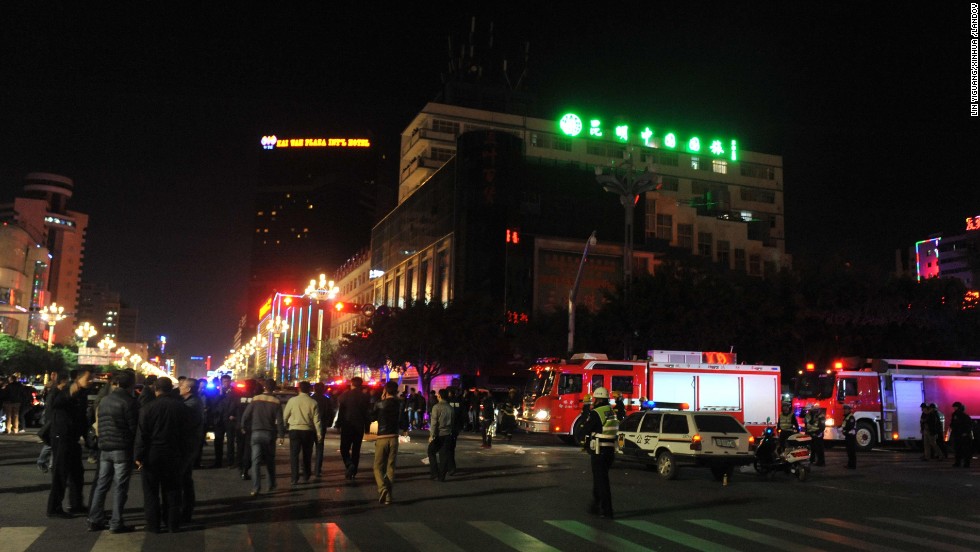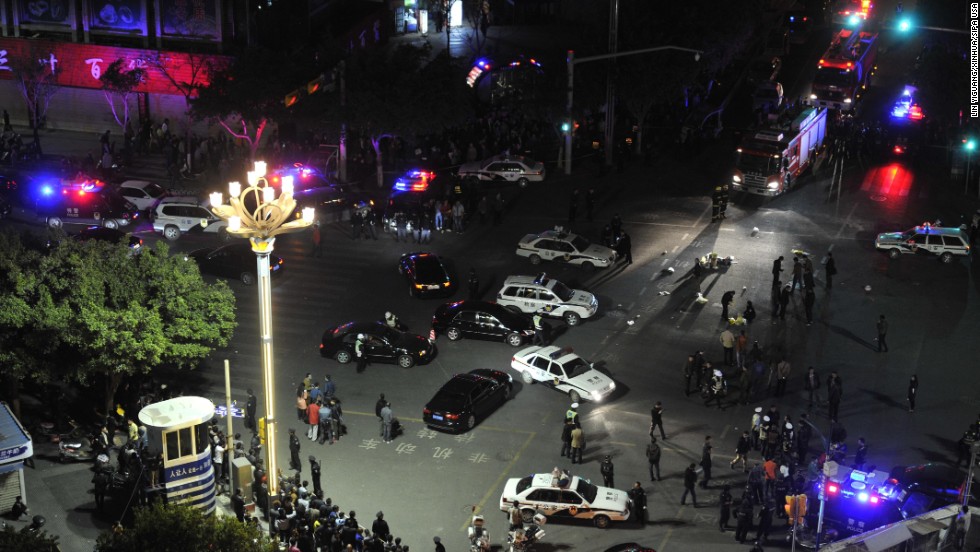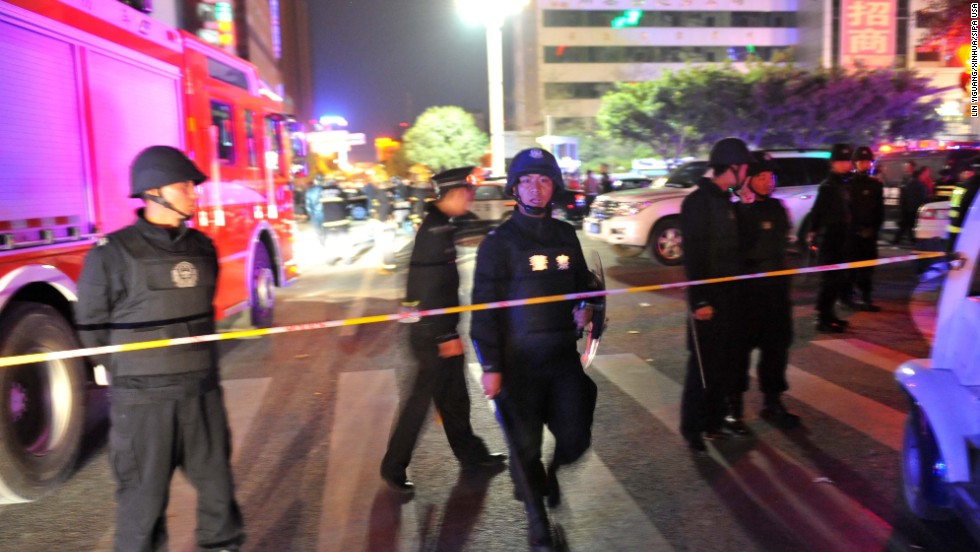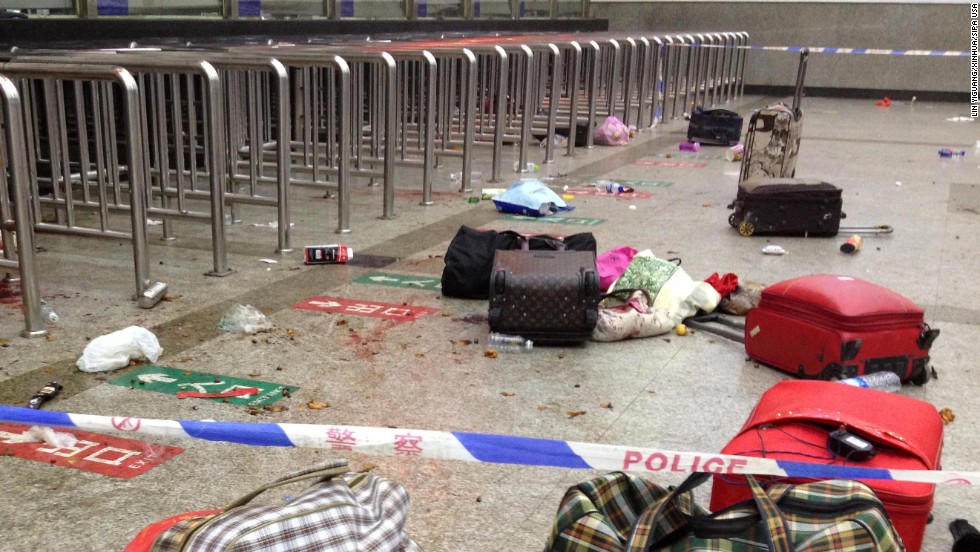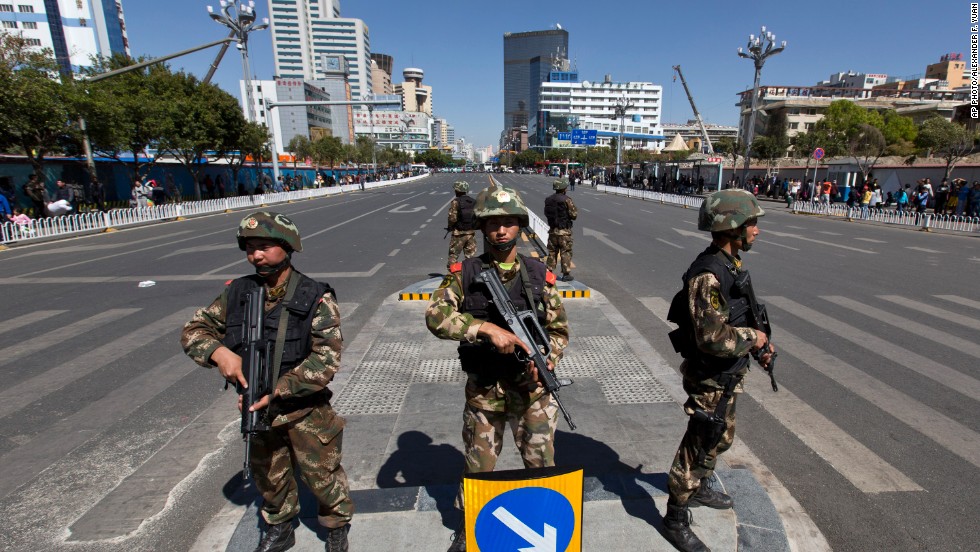Story highlights
- "We saw two people carrying big cleavers hacking whoever is in the way," witness says
- Police say separatist group from northwest China to blame
- Four suspects reported killed; other attackers still being sought
- Train departures are not affected
A day after men armed with long knives stormed a railway station in the southwest Chinese city of Kunming, killing dozens of people and wounding more than 100, authorities described what happened as a premeditated terrorist attack.
Police shot dead at least four of the attackers -- who numbered more than 10 -- and were looking for the others, officials told the state-run Xinhua News Agency.
Premier Li Keqiang asked that security in public places be tightened.
But for Chen Guizhen, that request came too late.
The 50-year-old woman told Xinhua at the hospital that her husband, Xiong Wenguang, 59, was killed in the attack.
"Why are the terrorists so cruel?" asked Chen, her husband's bloody ID card shaking in her hands.
The attackers gave no warning.
Liu Chen, a 19-year-old student from Wuhan, capital of central China's Hubei Province, was at the station to buy tickets when the attack began.
"At first I thought it was just someone fighting, but then I saw blood and heard people scream, and I just ran," she said.
Lu Haiyan said the slaughter began while she and a friend were standing in the ticket hall of the train station.
"Suddenly, many people started running around crazily," she said on Tencent Weibo, a Chinese equivalent of Twitter. "We saw two people carrying big cleavers hacking whoever is in the way. They almost got to my back. Then I lost contact with (my friend) and I saw blood splashing in front of me."
As is common in the aftermath of attacks, the casualty figures were in flux: in the same story, Xinhua reported that at least 28 civilians had been killed and 113 wounded and that 29 were confirmed dead and more than 130 wounded.
Members of a separatist group from Xinjiang, in northwest China, are believed to have carried out the assault, authorities said. The report referred to them as terrorists.
Police said that, in addition to killing at least four attackers, they had shot and wounded a female suspect.
Train departures were not affected, Xinhua reported, citing the railway bureau.
In the aftermath, postings on Sina Weibo, another Twitter-like social medium, showed local police patrolling the station, where bodies lay on the ground in blood. Chinese state TV showed investigators placing a knife -- its blade at least 2 feet long -- into an evidence bag.
Mass knife attacks are not unprecedented in China. Some occurred in 2010 and 2012, but the attacks happened at schools and didn't appear to have political connections.
Chinese President Xi Jinping urged law enforcement "to investigate and solve the case and punish the terrorists in accordance with the law," according to Xinhua.
Kunming's railway station is one of the largest in southwest China.
Two weeks ago, 11 "terrorists" died in the Xinjiang region, Xinhua reported.
Frequent outbreaks of violence have beset Xinjiang, a resource-rich area where the arrival of waves of Han Chinese people over the decades has fueled tensions with the Uyghurs, a Turkic-speaking, predominantly Muslim ethnic group.




